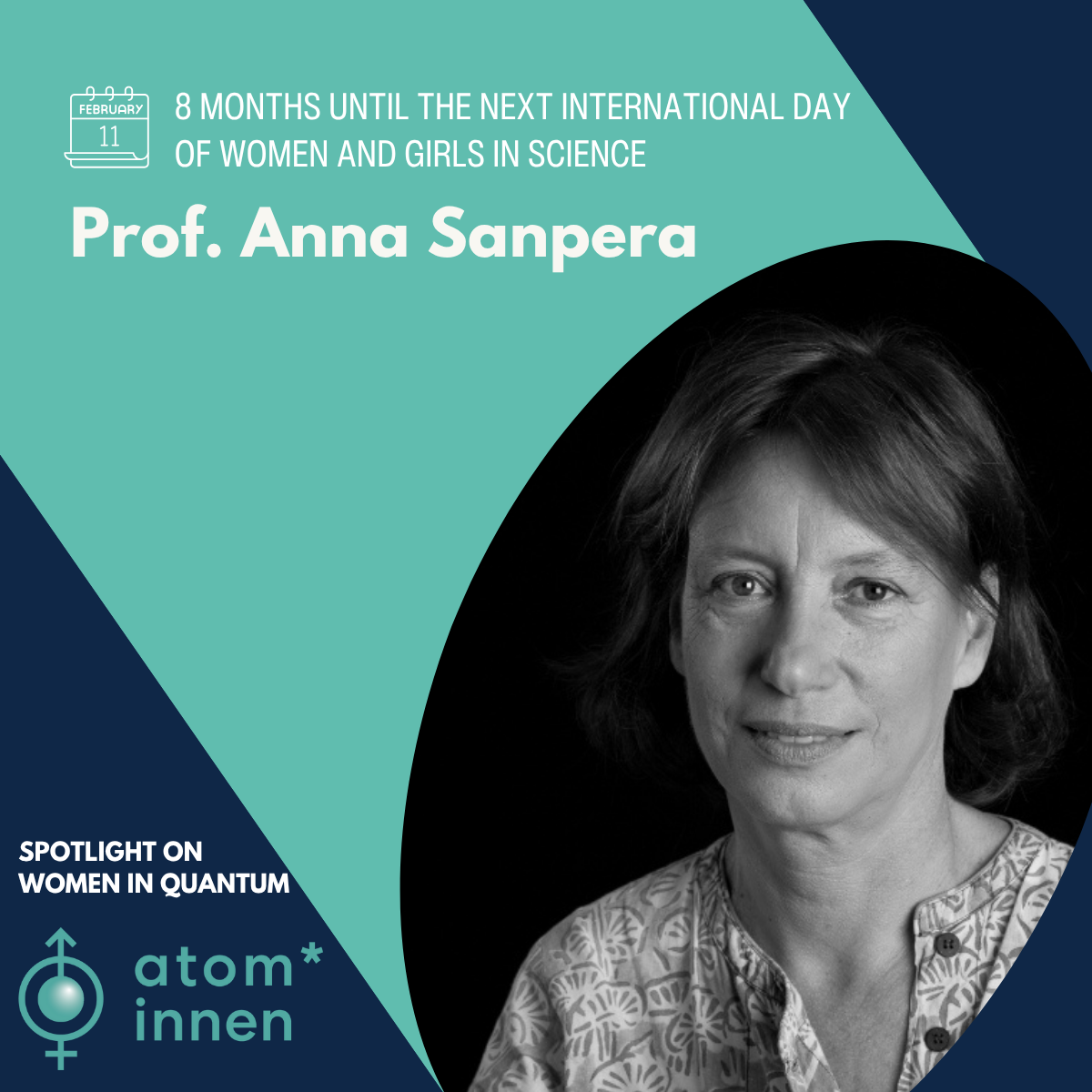Diversity definitely adds value. We met Prof. Anna Sanpera, one of the corresponding authors of the Women for Quantum - Manifesto of Values

Anna Sanpera Trigueros is an ICREA Research Professor at the Universitat Autònoma de Barcelona, specializing in quantum information, atomic physics, condensed matter, and statistical physics. Her research focuses on the unique properties of ultracold atomic gases, entanglement theory, and quantum neural networks. Previously a research fellow at Leibniz University in Hannover, where she habilitated in 2002, she has held her current position since 2005. Anna is also dedicated to education and popularising science, connecting advanced quantum research with the general public. She is one of the corresponding authors of the Women for Quantum - Manifesto of Values, which was published in 2024 with the purpose to call for changes in the current model of scientific leadership, funding, and authority, hoping to also remove structural barriers hindering women and underrepresented groups to participate.
How did the manifesto come about?
The manifesto was the result of over a year and a half of discussions and two major meetings. It wasn’t easy; it took a long time to craft something that simply calls for dialogue. It’s not a solution; it’s an invitation to the scientific community to talk about the things we see that can be improved.
You mentioned that this manifesto benefits people of all genders.Could you please elaborate on that?
Yes, many men don’t feel represented by the current model of a scientific career either. The high competitiveness can be alienating for them as well. The manifesto isn’t just for women; it’s about creating space for everyone to discuss the existing system and its flaws.
Has it been well received so far?
If you were a physicist starting out in your career, how would an initiative like W4Q have helped you?
For me personally, it might be too late — I'm already established in my career. But I think initiatives like this are incredibly important for the next generation of female scientists. I talk to young women who are doing their PhDs, and many of them are considering leaving science. It’s a common story. They find it hard to balance their work with personal life, and it’s tough. These initiatives can offer them the support I didn’t have.
Do you think that young women working in science today are aware of the gender issues in their field?
That’s a tricky one. Some are aware of it, but many don’t see it, at least not until later in their careers. When I was younger, I didn’t think gender inequality was an issue either. When I speak to young women, they often say they’re leaving science because it’s too demanding; they don't necessarily recognise the subtle gender disparities. These differences are often invisible at first.
Are you happy with your job?
Yes, I love my job. It’s intellectually challenging, and I get to work with bright young people. I enjoy mentoring them, not just in physics, but in broader ways—discussing philosophy, art, and how to approach problems. I find it incredibly rewarding to be surrounded by young minds, full of ideas and creativity.
Do you find it challenging to work with young people, given that they bring new ideas and perspectives?
I see it as a privilege. It keeps me on my toes. Yes, it can be demanding, but it’s also incredibly refreshing. I get to help shape how they think about science and the world, and in turn, I learn from them. This constant exchange is one of the best parts of my job.
How important is diversity in your scientific work?
Diversity definitely adds value. In my research group, we have people from 13 different nationalities, which brings a wealth of different perspectives. Diversity definitely adds value. In my research group, we have 13 nationalities, and that brings a richness of perspectives. While you can certainly do good science without diversity—it’s been done for centuries—it’s less creative, less interesting. Diversity opens your mind to different ways of solving problems, and it creates a more open, comfortable environment for everyone.
Finally, do you think the world would benefit from having more women in leadership roles?
Absolutely. I often joke that if women had been in charge for the last 200 years, things would be much better now. Of course, not all women are perfect, but our approach to problem-solving is different — more dialogue, less conflict. You could see this during the pandemic, in the way that female leaders managed the crisis. I think it’s time for a change.
Author: Angélique Sanchez
Date published: 2024-11-30

